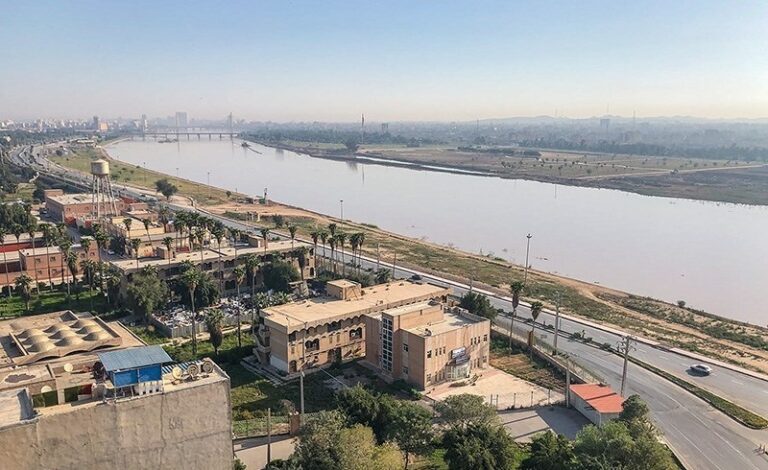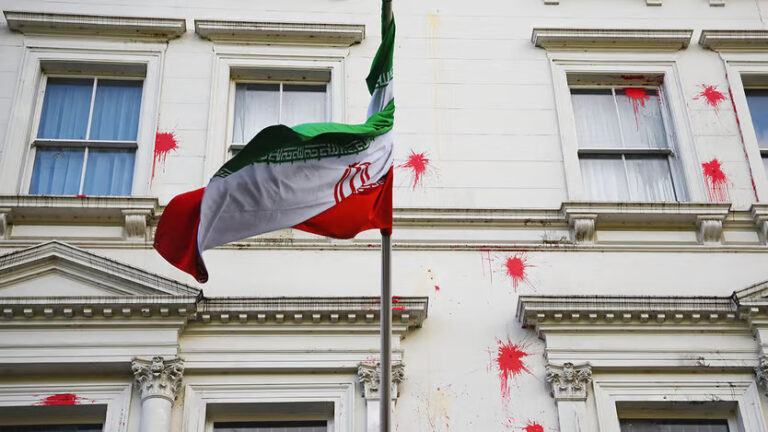By: Ken Timmerman
Plainclothes police arrested the leader of an Iranian Kurdish opposition group at his apartment near Cologne, Germany, on Friday afternoon, a move sure to be welcomed by the Iranian government, which has called his group a terrorist organization.
Rahman Haj Ahmadi was arrested by an estimated 20 plainclothes German security officers, who stormed his apartment but failed to show an arrest warrant, according to sources close to the Kurdish leader.
“At first, he thought it was the Iranians who had come for him,” an aide to the Kurdish leader told Newsmax.
Ahmadi is the secretary general of the Free Life Party of Iranian Kurdistan, PJAK, a political movement launched in 2003 that has also engaged in “self-defense” operations against the Islamic Revolutionary Guards Corps.
The U.S. Treasury Department listed PJAK as a “specially-designated global terrorist” organization on Feb. 4, 2009, alleging that the group had “terrorist ties to the KGK,” the political arm of the PKK, the Turkish Kurdish organization that has been battling the Turkish government for the past 25 years.
But a German court explicitly rejected an effort by the German government last year to impose similar restrictions on PJAK activities in Germany, according to Morton Sklar, a lawyer for the group based in suburban Maryland.
The State Department has never accused PJAK of engaging in international terrorism or military activity outside of Iran. But PJAK fighters have clashed occasionally with Iranian Revolutionary Guards units in Iranian Kurdish towns and villages, making it a primary target of the Iranian regime.
Ahmadi was arrested just one day after Belgian police raided the headquarters of ROJ TV, a Kurdish-language broadcasting studio in Brussels allegedly tied to the PKK.
Geert Lambert, a Green party senator in the Belgian Parliament, blasted the police for “Al Capone-like” tactics during the Brussels raid, which trashed the video production studio.
“Senator Lambert is very concerned over this violation of the cultural rights of Kurdish residents in Belgium who have not been calling or engaging in violence,” said Pieter-Jan Devos, a spokesman for the Belgian senator reached by Newsmax on Friday.
“Senator Lambert does not believe the Belgian government should become a tool of the government of Turkey,” he added.
Aides and family members of the PJAK leader say that the German government has not told them where they have taken Ahmadi. A spokesman for the German embassy in Washington, D.C., said he had no information about the arrest.
Iran has complained frequently about PJAK’s activities, and has launched repeated artillery attacks and even airstrikes against PJAK bases in the Qandil mountains of northern Iraq. But until the Treasury Department action last year, Iran’s efforts to get PJAK branded as a terrorist organization – both in Europe and the United States – had failed.
PJAK denies any operational ties to the PKK. During my visit to the PJAK camps in northern Iraq, it was immediately obvious that the PKK and PJAK occupied geographically distinct areas of the Qandil mountain range, separated from each other by 10,000-foot-high mountains and successive valleys where the only roads are washed out riverbeds and donkeys are the most reliable means of transportation.
At the PJAK bases I visited, there was not only no PKK presence: there was no hint of political, military or strategic cooperation between the two groups. (Read “Kurdish Rebels: ‘We’re Not Terrorists’”)
In subsequent interviews after that trip, Rahman Haj Ahmadi stressed that PJAK’s primary goal was the political and social transformation of Kurdish culture, not military activity.
During my last interview with him, conducted in Europe last December, he told me that he was hoping to transform the opposition Green movement in Iran into a nation-wide secular democratic movement, “to prevent Mousavi and Karrubi from establishing another Islamic dictatorship.”
He warned that Turkey was “trying to convince the Obama administration to take military action against PJAK bases in the Qandil mountains,” and urged other opposition leaders to join together against the Iranian regime.
Ahmadi’s arrest comes just days after the Iranian government abducted rebel Baluchi leader Abdolmalek Rigi in Pakistan, bringing him back to Iran and staging a televised “confession” during which Rigi claimed the CIA had offered to provide his group with arms, money, and military training.
According to Alireza Nourizadeh, an Iranian journalist living in London, Rigi’s confession was part of a negotiated deal with the Iranian regime to win the release from Iranian jails of Rigi’s brother and other members of Jundollah, his guerrilla group.
“I’ve seen people who have been jailed and tortured for seven months by this regime, and they don’t confess,” Nourizadeh told Newsmax. “Did you see how he looked? Freshly shaven, with a clean shirt, relaxed? I think Rigi agreed on certain conditions to surrender to the regime and play their game in exchange for his freedom and that of his men.”
In exchange, Rigi will give orders to release a dozen IRGC officers, MOIS operatives, and members of the Iranian security forces abducted by his group during raids inside Iran, chief among them a top Qods force officer named Colonel Shebani, Nourizadeh said.
Iran has accused Jundollah and PJAK of working with the CIA to foment an ethnic-driven rebellion against the Iranian regime.
Both groups operate in predominantly Sunni Muslim areas along Iran’s eastern and western borders. Both groups appeal to non-Persian minorities, who have been systematically repressed by the Tehran regime.











+ There are no comments
Add yours